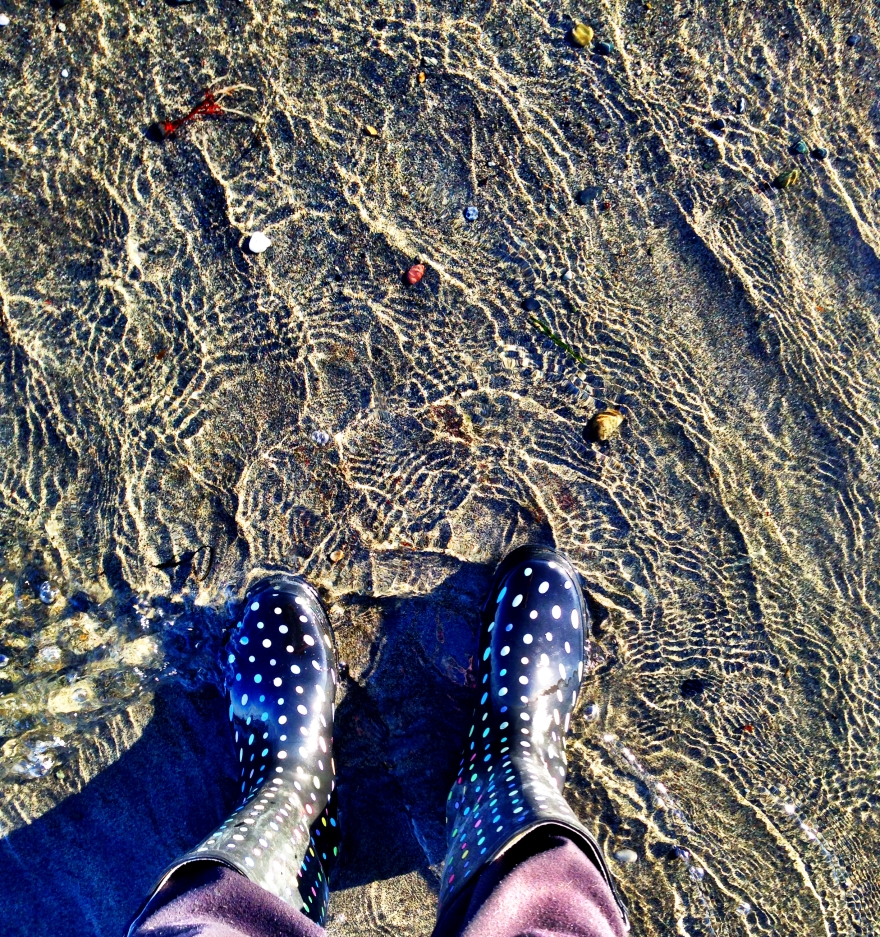When you come out of the storm, you won’t be the same person who walked in. That’s what this storm’s all about. ― Haruki Murakami The week's forecast promised nothing but grim. Day after day of rain. Heavy skies that reflect only muted grays and browns, the not-cold-not-warm-sensory-deprivation temperatures that dull the mind; outside smells of rotting wood and moldy cheese and inside your hands are always cold and you're weary of the sound of voices--your own, the cat's, the cashier at the grocery store asking how you prepare your leeks. In other words: Winter, Pacific Northwest-style. Just when my heart is beginning to ache for Spring. I braced myself.
There's no forecast for the soul, no way to predict when heavy clouds will sit on your heart and steal your breath. Each morning, you wake and listen to weather building in your mind. Usually, there is a providence of ferry horns and train whistles to signal the arrival of ideas, an urgency of sirens because you can't wait to pick up where you left off the day before, a racket of errands and chores you must shuffle so your words get the full attention of your brain-heart-hand connection.
But sometimes there comes a spell when you hear nothing. When you think you ain't got nothing. No more words or no more will to drag them from the foggy corners. The brume descends and all color, taste, music vanish. Your runs are slogs, your swims are trials by sludge, your yogic breathing stutters, because even breathing is Just. So. Hard.
Yet, if you listen a little more carefully, you can catch the signs the other forecasters miss. The slightest slings and the most harmless arrows begin to land and wound. Your confidence becomes dissonance and your inner harmony is bested by the demons of dissension.
You know what's coming. You don't know how long it will last, so you batten down the hatches, hunker in your little lifeboat, tuck your head in your sou'wester. Chatter becomes cacophony, so you turn off social media to silence the din of voices, listening for the clarion bell that signals an All-Clear.
You are beginning to accept there is release in disquietude, that depression is not to be feared, but to be used because it brings a certain stillness. The tiny moments of grace shimmer in sharp relief against the tarnished patina of sadness.
And you keep writing. You let habit be the anchor. You start each day in doubt and bewilderment and through sheer force of will (or is it desperation?) you end the day with a sense of the fullness of life. Your life.
If you keep writing, the storms will roll through and scour out the mud and detritus and leave you clean and shining. You will land safely, bumping onto shore with a wobble and scrape.
One of the things I've come to appreciate most about living on a peninsula that looks like the tailfin of a whale is how quickly weather blows through. As it did this week. Storm front after storm front smashed across the peninsula at night. The wind and rain woke me in the wee hours, our upstairs corner flat shook; I imagined the neighbors' trees crashing through the glass walls and roof of our sunroom. I groaned at 4 a.m. as I planned out my morning run, knowing the rain and wind would slow my forward momentum and chill me to the bone.
But the days were exuberant with sun. I drove with the sunroof open; I wrote in the sunroom for the first time since Autumn--the temperature approaching 70° even though it was shy of 50° outside. I hiked in shorts.
This Sunday evening, the lights flicker. The house shakes. The wind is so ferocious and the rain so pummeling, I laugh in wonder. The storm signals change, motion, rage and release. It pulsates with furious joy of being alive. I'm not too far behind.
The sky is low, the clouds are mean,
The sky is low, the clouds are mean, A travelling flake of snow Across a barn or through a rut Debates if it will go.
A narrow wind complains all day How some one treated him; Nature, like us, is sometimes caught Without her diadem.
Emily Dickinson


